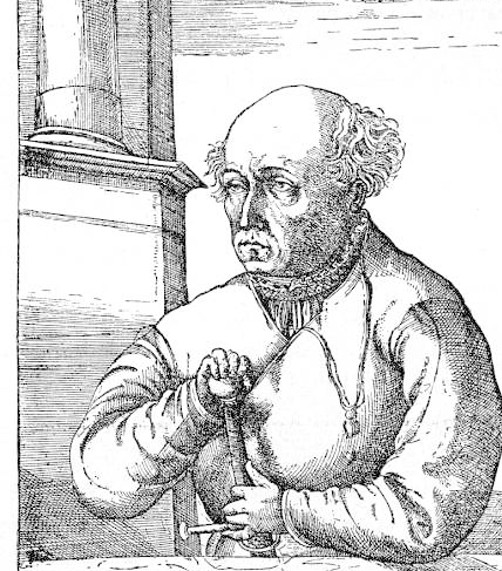Paracelsus (1493–1541) studies medicine in Ferrara and travels around Europe as an army surgeon. In 1527, he receives an appointment at the University of Basle; however, his opposition to authorities provokes the medical faculty and soon causes a scandal. His doctrine of principles
combines Aristotelian and neo-Platonic thinking with the tradition of alchemy. In alchemy, a natural body forms from an Aristotelian element and three principles: sulfur, salt, and mercury. These function as a kind of soul of the body and they determine its properties. The principles inherent in a body can be recognized through burning. In contrast to modern ideas, this view does not result in a body that is divided up into its separate component parts. Rather, according to the doctrine of principles, a body is a composite unity of matter and principles.
Transmutation / Chemische Veraenderungen
Theophrast Paracelsus (1493–1541)

[ Sitemap ]
[ info ] This website was created by the MPI for the History of Science.
 Scene
Scene


 1st Slide
1st Slide
 Branching Point
Branching Point
 Module: Transmutation / Chemische Veraenderungen
Module: Transmutation / Chemische Veraenderungen Sequence: 0.0. START
Sequence: 0.0. START Branching Point: Transmutation and Chemical Changes
Branching Point: Transmutation and Chemical Changes Slide: Fire Assaying
Slide: Fire Assaying
